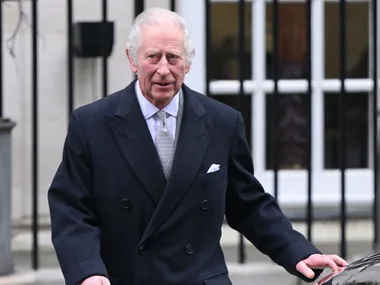Whenever you set out to achieve anything in life there are always changes that need to occur. Your changes will affect the people around you and you need to be aware of this fact. To reach your desired destination you need to plan.
This includes your direction, how you are going to get there, the obstacles, and the support systems you require. Having a good support system is vital to achieving and sustaining any goal, but in particular weight and health goals. Your achievements can be greatly weighed down by an unhealthy support system.
On your weight loss and health journey, your greatest successes and challenges will be with the people closest to you. The changes that you make in your daily life, your lifestyle, your body, and your self-esteem will affect everyone around you. Any changes you make will result in stress for some of the people around you. Communication is the key to reducing stress on relationships during times of change.
You and your changes impact the people around you and just as powerfully, the people in your life impact your life and lifestyle. You need to identify the healthy and supportive relationships in your life and those that will sabotage you, in order for you to achieve your goals. There are 3 main types of people in your life:
Cheer Squad – these people support you no matter what. They are there for you when things are going good and they praise your efforts. However, when things are not so good, they are there to pick you and your spirits up and help you get back on track.
Unconscious Saboteurs – more than likely these are the people closest to you such as your family, friends and colleagues. They appear supportive and they believe they are being supportive. However, they may say things or behave in ways that nudge you off track. They do not purposefully go out of their way to sabotage you, they are acting out of habit or what they think is right.
Saboteurs – these people are consciously trying to stop you from achieving by saying things, behaving in certain ways or putting obstacles in your way. They may appear to be supportive on the surface but underlying, they are plotting their next move. Unfortunately, Saboteurs can be family, friends, colleagues and acquaintances and can be difficult to spot.
Sabotage has nothing to do with you or your goals! Sabotage is all about the person responsible for the sabotage and their issues. Both the Unconscious Saboteur and the Conscious Saboteur try to interfere with your planned journey for the same underlying reasons – they are trying to protect themselves.
The main reasons for sabotage:
Fear – they fear change and they are trying to protect the status quo. They are afraid of you changing and leaving or them having to change.
Love – their self-worth is bound with your relationship, love and acceptance. They may feel rejected by changes in your assertiveness, confidence and the likes. They need to be reassured. They are most likely to be food pushers.
Control – power and manipulation is the weapon – they are extremely judgemental, critical, guilt-inducing and employ emotional blackmail. They will try to undermine your personal power and control as they fear change and your success.
Rigidity – they are highly resistant to change, remaining inflexible and will try to undermine your commitment and motivation. They may overtly rebel, pick fights or subtly rally the troops against you. For example, if mum is trying to change eating patterns to help her and the family to lose weight, dad will not eat the food or bring fast food home even though mum has just cooked a nutritious meal.
Jealousy – they will put on a facade of being a supporter but they are plotting to sabotage you because they do not want you to be successful. They may say things to you like, “you are losing too much weight; don’t you think you are taking this diet thing too seriously?” They will also tend to push food.
Dealing with sabotage comes down to the same basic principles:
Be prepared – know your Saboteur and their sabotaging ways and don’t get sucked in.
Assertive Communication – stick to assertively responding and not reacting:
Clearly state the specific behaviour and/or situation
State how that makes you feel
Ask for what you need from them
Ask them to please behaviour differently in the future with a specific behaviour
Responsive Listening – listen to them rather than hearing through emotion or habit
Listen without interrupting
Listen to words and emotions – what is the message
Summarise the message back to the person – this will give them an opportunity to respond if you did not get the message accurately
Ask them what they need from you
As long as you remember that the sabotage is not about you! It is about the other person’s insecurities and the need to protect themselves and their relationship with you.
Some helpful hints and tips when dealing with Saboteurs:
Everyone communicates differently – some people are more open and honest, others are more emotional, others are less expressive through words and more through body language. You may need to alter your style to suit the person you are communicating with.
Habitual reacting and hearing – if we experience certain behaviours or words or situations enough we tend to react automatically to the situation without really listening to or seeing what has happened. You may do this and so may the Saboteur. Check your own emotions and responses and watch for automatic reactions from the other person. Sometimes the written word bypasses this response.
Express your needs – if you don’t ask, you don’t get! People are not mind readers or needs readers. If you need someone to change their behaviours or words then you need to assertively ask for what you need.
Gradual changes – making major changes and/or many changes will cause distress to any relationship and is also unsustainable long-term for you. The more gradual the changes the more likely it will be sustainable and the more likely it will result in minimal distress to relationships.
Negotiation – some changes may need to be negotiated for success to occur. This is important if you have a Saboteur as you may be able to negotiate and use some of their own emotional or achievement currency to find a balance.
Involvement – if people are involved in something or invited to get involved, they don’t feel left out or wondering. They will understand what you are trying to achieve and may be more likely to start taking an interest and get involved.
Reassurance – spending quality time with loved ones, telling and showing them how much you still care for them will reduce their stress.If you want to be successful, maintain personal power and control here are the steps you need to take in identifying and negotiating with your support system:Step 1: Know what you want to achieve and what you need from each of the people in your support system.
Step 2: Identify who in your support system fits into each of the 3 categories – Cheer Squad, Unconscious Saboteur and Saboteur.
Step 3: For those in the Saboteur categories write down what you believe is their underlying reason.
Step 4: Write down how you think they have sabotaged you in the past. For example, do they push food, do they make sly comments, is their self-worth tied up in your relationship? Write down as many things as you can think of. You may want to keep an open diary as things may come up in the near future.
Step 5: Write down how you could counteract the sabotage. Use the hints and tips above. The more prepared you are for sabotage, the easier it is for you to stay on track and stop falling into other people’s traps.The key to your success is a healthy support system. You can turn Saboteurs into Cheer Squad members with some work. It is also important to realise when to distance yourself from certain Saboteurs as some of them can never be negotiated with, and will always remain poisonous to you and your goals. Try and find as many people as possible that fit into the Cheer Squad category. Surround yourself with these people as they are the ones you will gain support from when times are the toughest and they will keep you motivated.**
If you want to be successful, maintain personal power and control.
Here are the steps you need to take in identifying and negotiating with your support system:
Step 1: Know what you want to achieve and what you need from each of the people in your support system.
Step 2: Identify who in your support system fits into each of the 3 categories – Cheer Squad, Unconscious Saboteur and Saboteur.
Step 3: For those in the Saboteur categories write down what you believe is their underlying reason.
Step 4: Write down how you think they have sabotaged you in the past. For example, do they push food, do they make sly comments, is their self-worth tied up in your relationship? Write down as many things as you can think of. You may want to keep an open diary as things may come up in the near future.
Step 5: Write down how you could counteract the sabotage. Use the hints and tips above. The more prepared you are for sabotage, the easier it is for you to stay on track and stop falling into other people’s traps.The key to your success is a healthy support system. You can turn Saboteurs into Cheer Squad members with some work. It is also important to realise when to distance yourself from certain Saboteurs as some of them can never be negotiated with, and will always remain poisonous to you and your goals. Try and find as many people as possible that fit into the Cheer Squad category. Surround yourself with these people as they are the ones you will gain support from when times are the toughest and they will keep you motivated.**
The key to your success is a healthy support system. You can turn Saboteurs into Cheer Squad members with some work. It is also important to realise when to distance yourself from certain Saboteurs as some of them can never be negotiated with, and will always remain poisonous to you and your goals. Try and find as many people as possible that fit into the Cheer Squad category. Surround yourself with these people as they are the ones you will gain support from when times are the toughest and they will keep you motivated.
**Kellee Waters
Psychologist
Hypnotherapist
Fitness Coach
** www.mindandbodypower.com.au
[email protected]
Newsletter conversion description. Get the latest in your inbox.




























































































